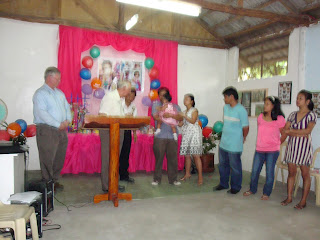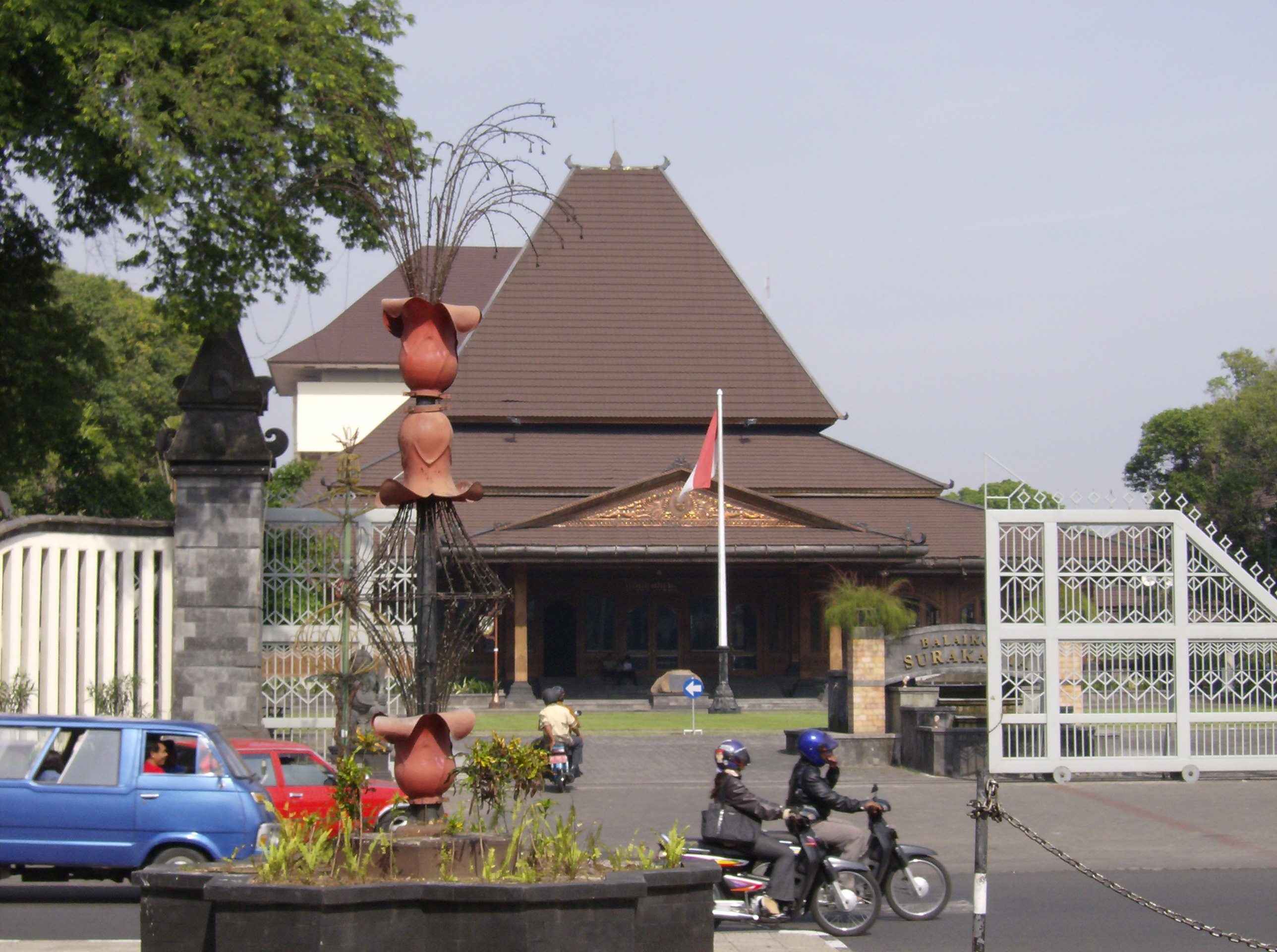 |
| A Mother's Day Present |
Earning My Stripes
Our first experiences at being parents seem so far off now. It began with that ecstatic moment the midwife handed me the grease-covered tiny body of our baby. My first words to Don were “I guess you’re not getting your football player.” He replied, “she smiled at me, she looked up at me and smiled!” My water bag broke on Sunday night. Kristy arrived early Tuesday morning. Matthew was different. He was very matter-of-factly. On a Saturday (or could have been Monday) morning. I had a couple of contractions while I was talking with someone across our dining table followed by a hurried trip on a manually driven “betchak” to Brayat Minulyo hospital, and two hours later, he was in our presence. Just like that.
Our first experiences at being parents seem so far off now. It began with that ecstatic moment the midwife handed me the grease-covered tiny body of our baby. My first words to Don were “I guess you’re not getting your football player.” He replied, “she smiled at me, she looked up at me and smiled!” My water bag broke on Sunday night. Kristy arrived early Tuesday morning. Matthew was different. He was very matter-of-factly. On a Saturday (or could have been Monday) morning. I had a couple of contractions while I was talking with someone across our dining table followed by a hurried trip on a manually driven “betchak” to Brayat Minulyo hospital, and two hours later, he was in our presence. Just like that.
Dreaming to be a Lawyer
When I was a young girl, I used to think it would be great to be a career woman, a successful professional, possibly a lawyer, arguing in court. I did not ever think I would marry and have a family. I guess I bought the Women’s Lib propaganda hook, line, and sinker. But God had very different plans for me. I met a wonderful man and got married in 1974. Three years later, I became a mother.
Two days ago, Don and I were talking and trying to picture what kind of person I would have been if God had not intervened in my plans. I will have been quite a different person.
As Don and I raised our children, we became more and more aware of our responsibility to these little ones we brought into this world. Everything we did had to be considered in the light of how it would impact the lives of our children. Sometimes there was tension between what we wanted for ourselves and what was good for the children. Actually, for the mother, this starts as early as during pregnancy and onto the breastfeeding months. I would have wanted to enjoy the good spicy Indonesian food we had, but which I had to avoid at the time. Motherhood was changing my life and my very person.
 |
| With grandchildren, Francine & Haley at Stow Lake, Golden Gate Park |
Motherhood revealed how selfish and self-centered I was. It taught me to be more sensitive to others needs. It helped me develop a filter on my motives and intentions. It gave me opportunities to grow in many different ways. As my children went into the junior high and high school years, I was challenged to get a better understanding of the context in which Kristy and Matthew were growing into. I could no longer get guidance from how I was raised because the times and the culture have definitely changed. Theirs has become a terribly more complex society. The leaps and bounds that technology was taking, left us parents in its wake, confused and often hardly able to cope.
God has used my children to educate me. In my 40's* I put on ice skates for the first time and skated with my kids in a public rink in a big mall. I was a ridiculous sight as I nervously and self-consciously skated my way around, hanging on to the rails or being held and led by 10-year old Kristy. And when I fell flat on my back onto the cold ice, embarrassed before the watching crowd, I found out that it was not such a horrifying experience. One could survive a public embarrassment. My children had taught me to be less judgmental and more understanding of others whose opinions may differ from mine. This past Christmas, our whole family spent a couple of days and nights together in Kristy’s & Jon’s home – all 11 of us, which included Don and me, our children and their children. Our love for each other survived the very animated political discussions. Helen and Matthew were Sanders’ fans (they gave us a bumper sticker for our car), Kristy was uncertain but was more liberal than Don and me who are card-carrying Republicans. To help us get on with the new technology, Matthew and Helen gave us smartphones to replace our flip top phones, so we could face time with them when we call.
Both Kristy and Helen are very intelligent, creative, capable and attractive women who have chosen motherhood over career, raising the kind of grandchildren that grandparents wish for. Two years ago, Helen told me, “I have come to the conclusion that the role in life God wants for me is to be a wife and mother and I am very happy with that. We do not have a lot of money, but I am very happy with my life.”
My life would have been very different if God had not intervened. I probably could have had a J.D after my name earning fame as a fiery litigator in court, with much more money in the bank. But at the end of the day, I would have gone home to a beautiful but quite empty house where the sounds of grandchildren calling Gramma or children who ask “Do you remember the curry leftover meatloaf we had for dinner when we were children?” are never heard. The joys, blessings and rich life that motherhood has brought me cannot possibly be compared with that which could have been.
Just a Mother’s Day rambling from me.
*I have just noticed that I had wrong info here originally. I wasn't 40 when Kristy was 10. Apologies.








